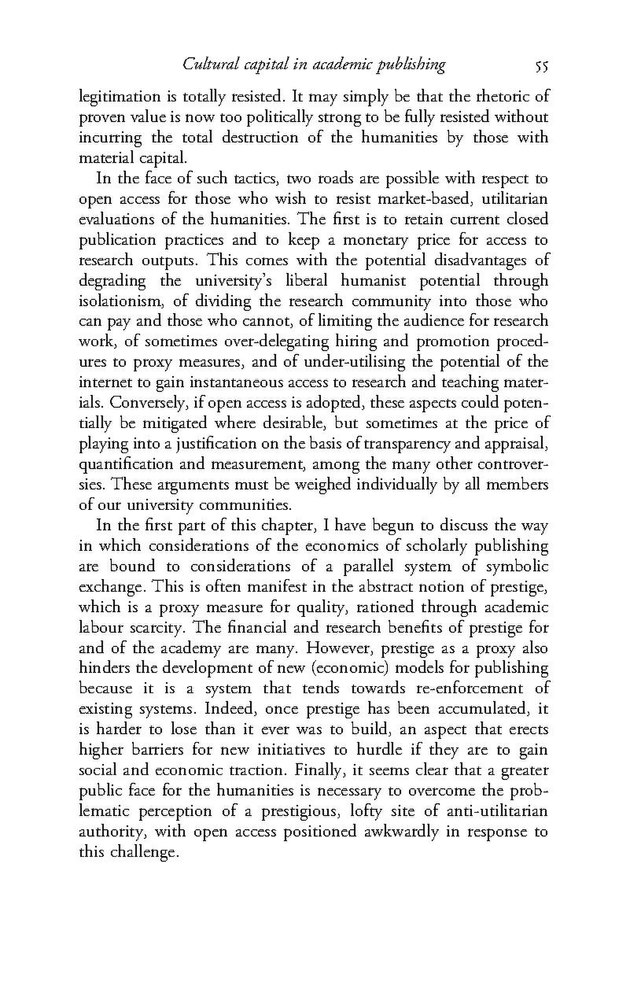legitimation is totally resisted. It may simply be that the rhetoric of proven value is now too politically strong to be fully resisted without incurring the total destruction of the humanities by those with material capital.
In the face of such tactics, two roads are possible with respect to open access for those who wish to resist market-based, utilitarian evaluations of the humanities. The first is to retain current closed publication practices and to keep a monetary price for access to research outputs. This comes with the potential disadvantages of degrading the university’s liberal humanist potential through isolationism, of dividing the research community into those who can pay and those who cannot, of limiting the audience for research work, of sometimes over-delegating hiring and promotion procedures to proxy measures, and of under-utilising the potential of the internet to gain instantaneous access to research and teaching materials. Conversely, if open access is adopted, these aspects could potentially be mitigated where desirable, but sometimes at the price of playing into a justification on the basis of transparency and appraisal, quantification and measurement, among the many other controversies. These arguments must be weighed individually by all members of our university communities.
In the first part of this chapter, I have begun to discuss the way in which considerations of the economics of scholarly publishing are bound to considerations of a parallel system of symbolic exchange. This is often manifest in the abstract notion of prestige, which is a proxy measure for quality, rationed through academic labour scarcity. The financial and research benefits of prestige for and of the academy are many. However, prestige as a proxy also hinders the development of new (economic) models for publishing because it is a system that tends towards re-enforcement of existing systems. Indeed, once prestige has been accumulated, it is harder to lose than it ever was to build, an aspect that erects higher barriers for new initiatives to hurdle if they are to gain social and economic traction. Finally, it seems clear that a greater public face for the humanities is necessary to overcome the problematic perception of a prestigious, lofty site of anti-utilitarian authority, with open access positioned awkwardly in response to this challenge.
